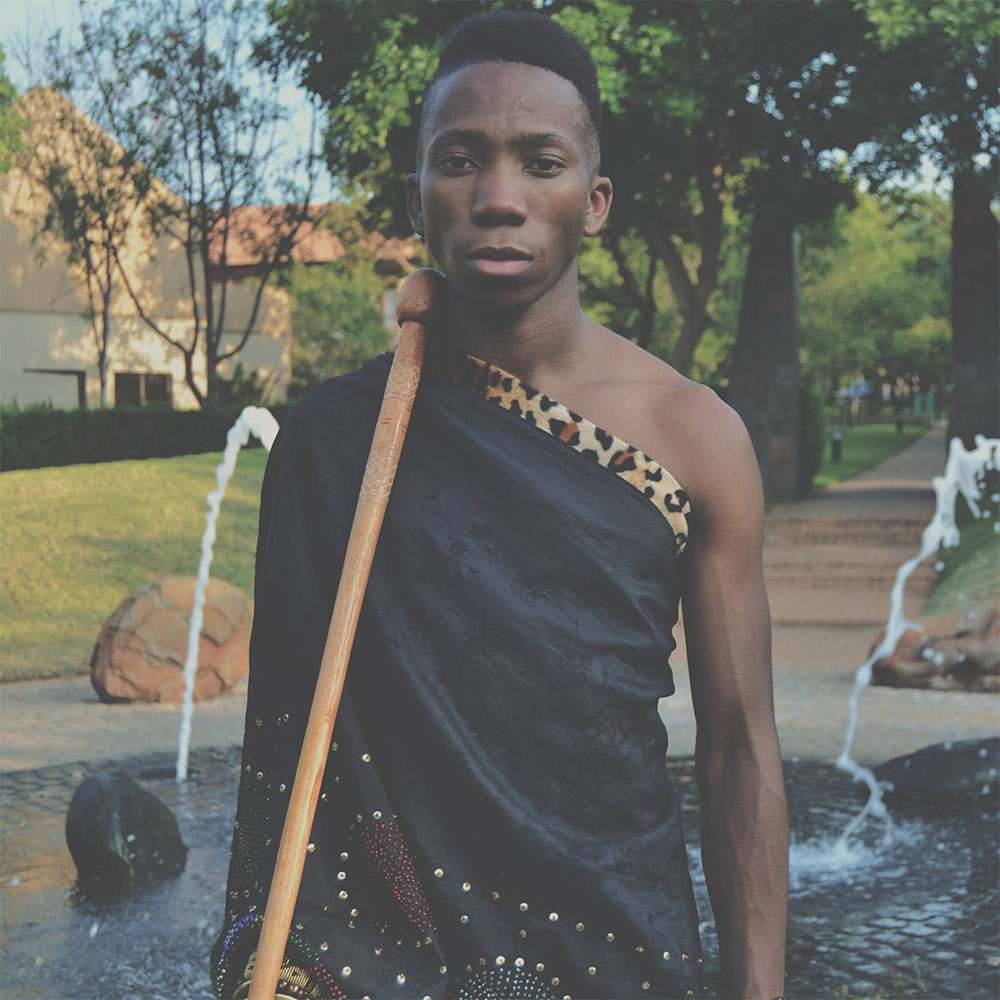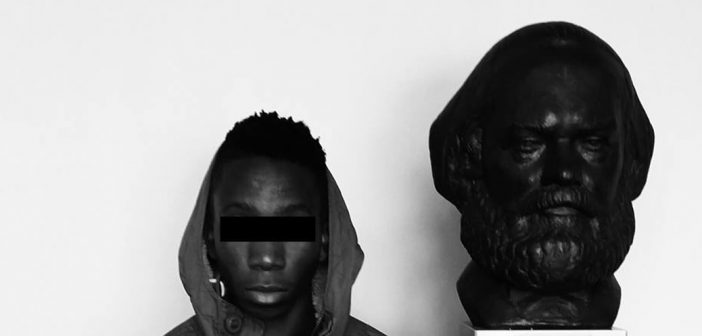Following the release of his debut EP, we interview new kid on the block, Gunch The Youth to chat about taking artistic risks and collaborating with jazz legend, Bheki Khoza. He talks about his unique sound and its global appeal

First of all, please tell us about your name, Gunch The Youth.
“Gunch” is my nickname from when I was a child; it doesn’t have a meaning. “The Youth” is a descriptive title like, “Bob the Builder”. Someone should assume that Gunch is young and spirited. I think it’s nice to say.
With your debut EP, Memoirs of a Great Her, you introduced South African hip-hop fanatics to something quite unique. How has it been received so far?
It’s been received really well, not necessarily by South African hip hop fanatics, but in other artistic and creative circles. It’s cool when someone writes something about my music in France, for example; I didn’t expect my art to be that far-reaching. Global appeal is important to me, hence working with different international artists like Chester Watson. I’m happy because I worked hard, so the response is unexpected but rewarding.
I can’t think of any other local artist whose sound is a blend of African traditional music and afro-jazz; I’d say you took a risk there. Were you not worried that the audience might misunderstand you and possibly reject you?
A big part of being a real artist is taking risks. I can’t make music thinking only about everyone else’s response – that wouldn’t be honest from me and also a very commercial way of thinking. I’m not concerned with commercialism, I’m more interested in timelessness, creating and not sharing a market. Commercialism is all about buzz and not necessarily relevance. Without saturation you’ll be replaced by the next new thing, however, real expression is timeless. Those were my influences at the time so I had to reflect it in my music, maybe one day it will be something else. Most great artists were once rejected. I think rejection is very relative.
Was your sound something you planned and took time to develop or was it just a random idea that you decided to experiment with?
I don’t do anything by mistake. My sound will always be a reflection of some part of me at that time. Firstly I’m a purist and secondly I wanted something that was alive. So real instruments that were being played well were very important for me in production. I like orchestra; I guess I was very organized then. As I get older on the project it changes slightly. I think in the future it will alter again
I think your collaboration with Jazz icon, Bheki Khoza on this EP is a perfect cherry on top to an already brilliant collection. I never would have imagined jazz and hip-hop joining forces! How did that come about and how important are collaborations of this nature toward the progression of South African music?
Thank you for that. He is my dad’s old university friend, so I heard his music around the house a lot when I was growing up. When I started making music he and my dad were my first mentors. I always try to be smart about my lyrics and message, but they really added wisdom to my sound. The South African music industry is very “boxy” in the sense that everyone wants to follow a blueprint per genre. There are too many musicians and not enough artists. Music is an art, so just as a painter mixes colours on a palette, a musician must be able to fuse appropriate genres. It allows for development, creativity, and expression…that is progression.
What other South African music veterans would you like to work with in the future?
Definitely Penny-Penny! He was ahead of the time; “Shaka Bunda” was straight fuego, really. They’re calling him the next Rodriguez.
Your lyrical content is very rich in wisdom, yet you are only 19 years old. Please tell us more about some of your sources of inspiration.
Lyrics deliver a message. Once you have something to say, you should think about it. Inspiration is a difficult concept for me to understand because I don’t think I really owe my work to anything or any person. I haven’t seen or heard something which made me want to create. Those are my own dreams and desires to create. Influence is similar but more accurate and many different kinds of art influence me. For example, I can see a good documentary or a movie and want to write great music. It’s a broad concept for me; I’m into fashion, cultures aesthetics and even time periods – those are also influences. The 80’s are my favourite – great fashion, synthesizers, neon lights…mad groovy.
One of the issues you address on Memoirs of a Great Her is the association of hip-hop to gangsterism and violence due to the tendencies of some artists. Besides writings songs, what other efforts can artists do to exterminate false impressions and stigma on hip-hop?
Artists need to actually embrace themselves in the culture, too many people are watching “Straight Outta Compton” or “Empire” or something and wanting to tell you about hip hop. A lot of people will tell you that Hip-Hop is relative and some artists speak about gangsterism and violence in their music because that’s what’s real to them. I support realities; tell your story because it means something but you need to understand that if you’re a real artist that’s a deeper calling, it’s not everyone’s phone that gets that ring-ring there. So use your influence to get black kids out of the gutter. It doesn’t have to be through music. Don’t make them scavengers for opportunity because too many kids are leaving school to become rappers. This is an art, not a hobby and if you’re good at what you do, you know that. You need to use your influence for empowerment and to help them understand opportunity. So that going to school to get into university or leaving it to chase a dream is always a calculated decision and never a scared way out.
There is a large element of social activism in your work and that doesn’t come as a surprise considering the many ills that are currently plaguing the youth. As a young person yourself, how would you advise other young people to play a role towards a country of their longing?
We need to be able to think about things for ourselves. We’re slowly starting to do that in some spheres. We need a generation of thinkers because individuality is progressive and a herd mentality is degenerate. Any form of social discrimination is primitive, really, physical characteristics determining superiority? Yet, past societies were simply herded into most of these beliefs. Racism, sexism, these were all once common threads, the mishaps of older generations. Our generation is responsible for breaking down a lot of social constructs, it’s an ongoing battle. The truth that we need to accept is that every new generation represents a more advanced and progressive human being than that of a previous generation, it’s how a society works. So in that we need to see our potential, we should be critical of generality in all social spheres and of commercial trends. The radio, the media, commercial art, corporations, even religions and political systems, many of them might be herded concepts of previous generations. The status quo has been for the role of the youth to be followers of older backwards generations, we need to grab the reigns and develop advanced societies.






